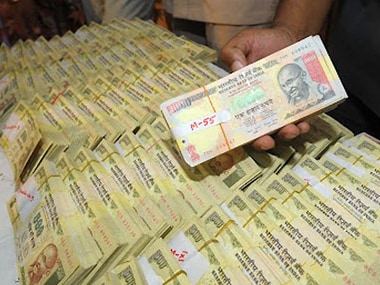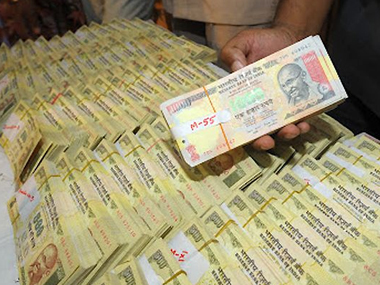When the government’s move to demonetise the Rs 500 and Rs 1,000 notes is looked at closely, the emotion can vary between praiseworthy and bold on one end to being fairly ill-conceived on the other. It will depend on which hat you have on. Let us look at the government view. The idea is to hit hard at black money as all those who cannot say from where they got these notes will be checkmated. Second, the problem of counterfeiting is deep and the only way out is through this surgical strike. Hence, an audacious step has been taken which should achieve this dual objective. But will it work this way? [caption id=“attachment_3096214” align=“alignleft” width=“380”]  Representational image. PTI[/caption] The issue of black money is acceptable because all those holding unaccounted money will find it hard to convert the same and there is a warning that there will be a trail on this score. Hence trying to push it through third parties will not work. But the curious feature of this exercise is that there will be new notes of the denomination of Rs 500 and Rs 2000 that will be in circulation. This means that we are not moving to a system where there are only low denomination notes but reverting to new ones, which is different. These twin issue s run significant risks. The black economy does not evolve overnight and takes time to build. Hence, there have to be systems in place to ensure that these new denominations do not generate a new black economy. Second, if counterfeiting is an issue, is there any guarantee that the new ones will not be aped? Quite evidently no one has control over it. But a start has to be made and hence this move is praiseworthy. A question that remains is whether Rs 500 or Rs 1,000 denomination is high from the standpoint of black money? Probably not because with high prices a Rs 1,000 note cannot get you a month of milk while a couple of kilos of pulses and edible oil will exhaust a Rs 500 note. Hence almost all households will be stacked with such currency notes and sifting the black money holders from genuine households will be difficult. Further all households, especially inhabited by senior citizens store at least Rs 3-5 Lakhs, as any emergency operation for this class requires cash to be paid upfront at hospitals. How will the IT department distinguish between a senior citizen now putting Rs 5 Lakhs in the bank account from one who is dealing with land? The experience has been that the IT department invariably sends notices to all assesses with a certain amount dealt as a thumb rule which will lead to harassment. Curiously, the money deposited will have to be withdrawn repeatedly by the senior citizen given the restrictions put by the government as they need to have this buffer at home. This aspect does not seem to have been thought through. Now from the point of view of being ill conceived, the view which has been expressed is that not all people have accounts. How then would they be able to out the money in their bank accounts. The government has been running the jan dhan scheme which may help, but those left out will have a problem. Second, the window kept open is too short. The same needs to be explained to all especially in the rural areas where farmers pay and receive cash all the time. They may never get to know in this time frame that they are holding useless paper which has to be exchanges or deposited. Absence of awareness caused by such surgical strikes can be a horror story for this class. Third, can the system bear up with this pressure? ATMs are bound to crash and unrest will unfold if banks are unable to provide the currency to those coming to change the same. Have we thought of it? Given the immediate demonetization and restrictions on what can be drawn, any slips in cash replenishment will lead to violence especially so as shops, chemists, vendors etc will not be accepting these notes. This can lead to a law and order problem and banks will have to bear the brunt and will require enhanced security. Fourth, we have also not built thy requisite infrastructure in the government space like state transport, railways, taxis, auto rickshaws etc, where cards can be used. Often amounts involved for a family to travel would be above Rs 500. This can create significant distortions. Will it boost the economy? Very unlikely. Money supply should not change except by the black money amount. GDP growth could get retarded as black money used for GDP components gets lower. Inflation led by demand could get tempered, though it is not a major issue presently. So the economic consequences will be marginal though mixed. While the idea is progressive, we may probably have been in a hurry to implement the same. The affluent would anyway not get affected as they use cards all the time. It is the middle class and lower income groups and senior citizens who will have to worry about getting the exchange right and getting out of the tax man’s sight. And finally there are lots of people who will not be aware or will not be able to go to a bank to deposit the money- some may not have an identity to do the limited exchange that is permitted. And they will invariably be from the most deprived section of society. Has all this been considered as this could finally end up the class we have been trying to protect through financial inclusion programmes. (The author is chief economist, CARE Ratings. Views expressed are personal)
Will it boost the economy? Very unlikely.
Advertisement
End of Article
Written by Madan Sabnavis
Madan Sabnavis is Chief Economist at CARE Ratings. see more


)

)
)
)
)
)
)
)
)



